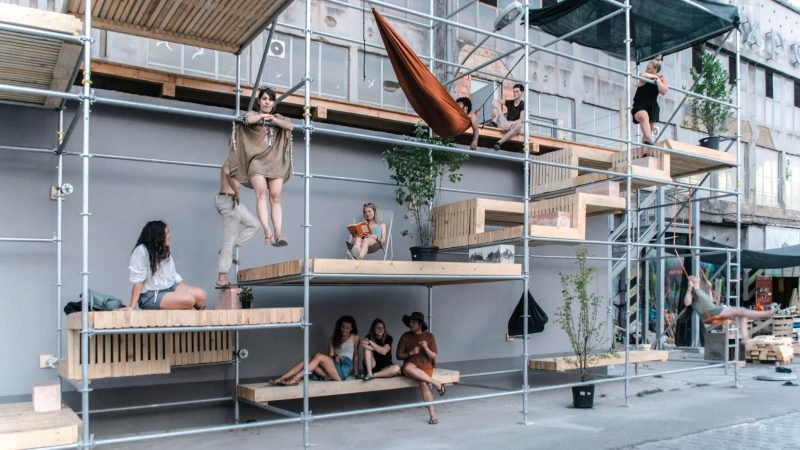Lunch On The Highway!
Did you ever have the chance to have lunch right on a heavily used highway? Two days ago, the inhabitants of the complete Ruhr Metropolis was given this once-in-a-lifetime opportunity with the Still-Life A40 project.
As the main event at Ruhr.2010 (the entire Ruhr Metropolis is one of this year’s European Capitals of Culture), highway 40 was closed the whole day to its usual users (cars, trucks) in order to celebrate the everyday culture of the Ruhr Area. Between 11 AM and 5 PM, the A40 was a place to walk, bike, play, paint, have lunch or perform. 20,000 tables were lined up to create the longest dining table in the world and to serve as a collective meeting place for not only the Ruhrgebiet inhabitants but also for people from outside the Ruhr Metropolis or even outside Germany.

The A40 runs over 60 kilometers and is considered to be the main artery of the Ruhr Metropolis, as it connects its main cities Duisburg, Mülheim an der Ruhr, Essen, Gelsenkirchen, Bochum and Dortmund. The Ruhrschnellweg, as the A40 is called, is the most intensively used highway in Europe. This made the whole operation very complex but also very special since Still-Life A40 can be regarded as a huge symbolic celebration of collectivity and culture.

For most of the inhabitants of the Ruhr Metropolis, the A40 is a usual place for a daily dose of frustration caused by traffic jams combined with working stress. It’s no wonder that locals consider the A40 to be the biggest parking lot of the Ruhrgebiet… Two days ago, however, it was a place to connect on a more positive manner. With three million people participating it has been one of the biggest parties we have ever witnessed. At 1 PM, a bicycle-caused traffic jam occurred as a consequence of the enormous amount of people participating. Later the organization even had to decide to close the highway for more people in order to avoid accidents.

Some things appeal to just everyone, this event was definitely one of them. In terms of city marketing and metropolitan planning we have to compliment the organization for creating an event that really helps a metropolitan region finding a new collective identity that at the same time strengthens its traditional identity.



